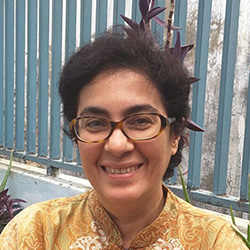Lampung, Indonesia’s model province for social forestry
Granting communities the right to manage state forests through social forestry programs in Lampung, Indonesia, could have positive outcomes for tenure security and sustainability while reducing land conflicts, a new study has found.
The best agency to lead social forestry in the province, the research suggests, is the community-level Forest Management Unit (FMU), with the support of adequate budget, community empowerment efforts and coordination among all actors.
Lampung is a pioneer of social forestry in Indonesia, having implemented versions of the scheme for almost two decades. The government scheme grants local communities rights to manage and use forest resources.
“Lampung is a province where the implementation of the social forestry program is very advanced in terms of achievement of targets,” says Tuti Herawati, lead author of the study and a researcher with the Center for International Forestry Research (CIFOR).
“Forest management reform has not been evenly implemented in all regions in Indonesia. In practice, implementation of tenure reform is faced with key questions such as, ‘What factors affect the security of forest management?’ and ‘How can management rights be guaranteed?’,” she says.
To find answers to those questions for Lampung, CIFOR launched a multi-stakeholder consultation using a participatory prospective analysis (PPA) approach. The resulting study addresses how the implementation of tenure reforms in developing countries can effectively improve a community’s certainty of access to forest resources.
The research in Lampung is part of the broader Global Comparative Study on Forest Tenure Reform (GCS-Tenure) led by CIFOR in Indonesia, Peru and Uganda, to investigate how forest tenure reforms are implemented, and what the outcomes are for tenure security. In Indonesia, research is ongoing in Lampung, Kalimantan and Maluku.“We have been collecting data at the community level and among several other actors in Indonesia from 2014 to 2017,” Herawati says.
This topic is in discussion at the 2017 Tenure Conference from 25-27 October in Jakarta, Indonesia.








